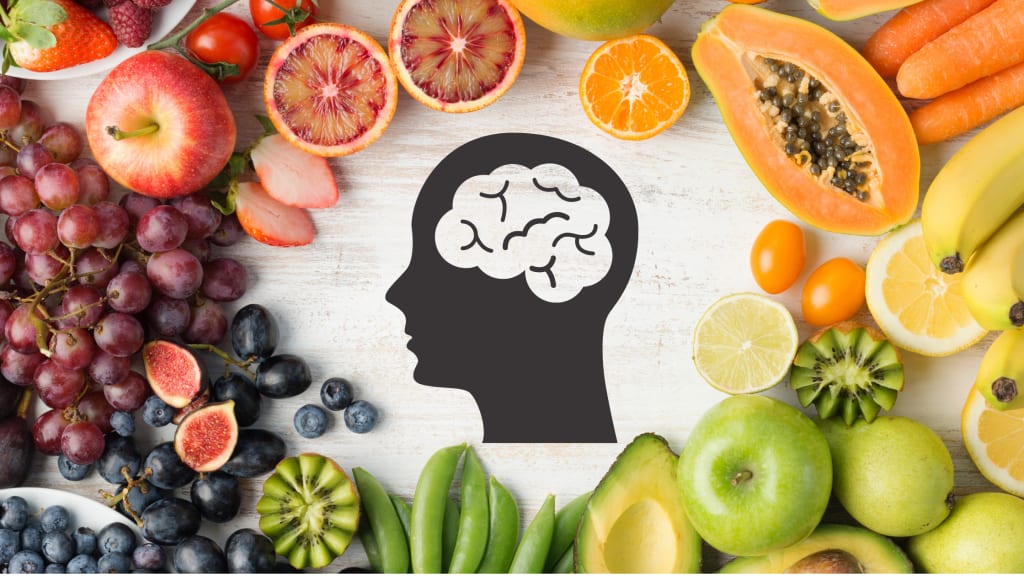The Connection Between Nutrition and Mental Health: Food for Thought
Have you ever made any connection between the foods you eat and your mind?

When it comes to mental health, we often focus on therapy and medication, overlooking a critical aspect: nutrition. The food we consume not only fuels our bodies but also has a profound impact on our mental well-being. In this article, we will explore the fascinating connection between nutrition and mental health, uncovering the power of food to nourish not just our bodies, but also our minds. Get ready to discover the profound impact of nutrition on mental well-being and how you can make informed choices for a healthier mind.
Understanding the Gut-Brain Axis: The gut and brain are intricately connected through a complex communication network called the gut-brain axis. We will delve into the science behind this connection, explaining how the gut microbiome and its role in producing neurotransmitters can influence mental health. Real-life examples will highlight how individuals have experienced improvements in their mental well-being by addressing their gut health.
The Impact of Nutritional Deficiencies on Mental Health: Nutritional deficiencies can have a significant impact on mental health. We will explore how deficiencies in key nutrients like omega-3 fatty acids, B vitamins, vitamin D, and magnesium can contribute to mood disorders and cognitive decline. Real-life examples will demonstrate how individuals have improved their mental well-being by addressing these deficiencies through dietary changes or supplementation.
Foods that Support Mental Health: Certain foods have been shown to support mental health and improve overall well-being. We will discuss the importance of incorporating nutrient-dense foods like fruits, vegetables, whole grains, lean proteins, and healthy fats into our diets. Real-life examples will showcase how individuals have experienced positive changes in their mental health by adopting a nutrient-rich diet.
The Role of Omega-3 Fatty Acids: Omega-3 fatty acids, found in fatty fish, walnuts, and flaxseeds, play a crucial role in brain health and mental well-being. We will explore how these essential fats can help reduce inflammation, support neurotransmitter function, and improve mood. Real-life examples will highlight the positive effects of omega-3 fatty acids on mental health.
The Influence of Sugar and Processed Foods: Sugar and processed foods have been linked to mental health issues, including depression and anxiety. We will discuss the detrimental effects of excess sugar consumption and the importance of minimizing processed foods in our diets. Real-life examples will demonstrate how individuals have experienced improvements in their mental well-being by reducing their sugar and processed food intake.
The Gut-Healing Diet: Probiotics and Prebiotics: A healthy gut is essential for mental well-being. We will explore the role of probiotics and prebiotics in promoting a diverse and balanced gut microbiome. Real-life examples will showcase how individuals have improved their mental health by incorporating probiotic-rich foods like yogurt and fermented vegetables and prebiotic-rich foods like garlic and onions into their diets.
Mindful Eating for Mental Well-being: Mindful eating involves paying attention to the sensory experience of eating and being aware of hunger and fullness cues. We will discuss how practicing mindful eating can improve our relationship with food and positively impact our mental well-being. Real-life examples will provide practical insights into incorporating mindfulness into mealtime.
Seeking Professional Advice and Support: It is essential to seek professional advice when making significant dietary changes for mental health. We will emphasize the importance of consulting with healthcare practitioners or registered dietitians who specialize in mental health. Real-life examples will highlight how seeking professional support can help individuals create personalized nutrition plans for their mental well-being.
Nutrition plays a vital role in supporting mental health and well-being. By making informed food choices and prioritizing nutrient-dense options, we can nourish our bodies and minds. Real-life examples demonstrate the transformative power of nutrition in improving mental health. So, let's feed our bodies and minds with the nourishing power of food for a happier and healthier life.





Comments
There are no comments for this story
Be the first to respond and start the conversation.